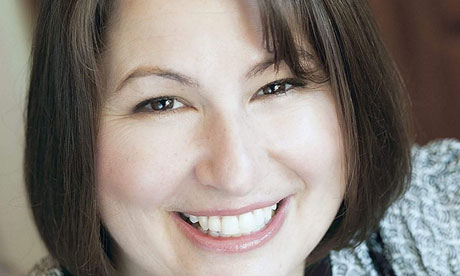
The boarding-school story is out of fashion in the UK but the fashionable prep schools of New York State are exotic enough to draw in readers. The exclusive co-educational institution in The Tragedy Paper by Elizabeth LaBan (Doubleday £12.99), with its gourmet dining hall offerings, inexplicable traditions and English teacher fresh out of Dead Poets Society, lends this absorbing tale of power dynamics and stifled relationships an air of The Secret History.
At its centre is the invisible connection between two boys who barely know each other, although both are suffering setbacks in love and both are struggling to fit into the school's social scene, which is not as laidback as it appears.
Duncan is in the year below Tim, and moves into Tim's old room to find a stack of CD recordings in which Tim explains the traumatic events of the past year and promises that his story will help Duncan nail the notorious senior English assignment: an extended essay on the nature of tragedy. It's a tough task (LaBan includes a sample paper to show how tough) and the conclusion could be that the boys also share a tragic flaw of trying too hard to please. The writing is measured and calm, even in the eye of the storm.
Ferryman by Claire McFall (Templar £6.99) is a touching, often funny and sometimes harrowing first novel about first love set in the mythologically and philosophically fruitful territory between life and death. Dylan, casualty of a train crash between Glasgow and Aberdeen, finds death a minor inconvenience compared with the grim school-field-trip sensations of the journey to the underworld that follows. These include the genuinely mortifying embarrassment of sharing cramped quarters with a boy whom she fancies (the boy being Tristan, the Charon figure sent to escort her to the afterlife).
The terrain and the elements they travel through, dodging ghouls and monsters, are shaped by Dylan's imagination and mood swings. It seems she has imagined The 39 Steps crossed with The Lord of the Rings. The rule is that Tristan must disappear from Dylan's death-life once he has delivered her across the Styx-like black lake, but Dylan decides to tear up the rulebook with turbulent results.
Song Hunter by Sally Prue (Oxford University Press £6.99) suggests that young people have been battling authority since at least the beginning of the last ice age in the short, intense tale of Mica, a young woman in a band of Neanderthal hunter-gatherers. Mica is a thorn in her elders' flesh with her ideas about gimmicky new hunting techniques and her conviction that life should offer a richer existence than the struggle for survival that fills her days. Her story is rich in ideas about evolution and the human spirit's thirst for beauty.
Last year SD Crockett depicted an imminent new ice age in After the Snow, in which young Willo needs all Mica's resourcefulness to survive alone in near-future Britain after social collapse. One Crow Alone (Macmillan £12.99) is a prequel to After the Snow and also a satisfying standalone novel, although with a more straightforward structure and voice than Willo's story. It explores the history of several minor characters in After the Snow, notably Magda, who helped to bring Willo up.
Around 20 years from now, with the big freeze shutting down the western hemisphere, teenage Magda is evacuated from her village in Poland and makes a perilous journey to London in search of her mother, then north on her unreliable lover's criminal business.
The narrative delivers all the bleak hardship and reverses of fortune promised by the title, from a Polish saying that roughly translates as "one for sorrow", but Magda's rehabilitation through her childhood smallholding skills is infused with joy and the novel ends with a sense of space that could be filled with a second prequel volume, but does not need to be.
No need to search for horrors in dystopian worlds when our recent history can deliver our worst inventions. The Quietness by Alison Rattle (Hot Key £6.99) is based on a true case of baby farming in 1870s London, the "quietness" being the Godfrey's Cordial that dosed the illegitimate children left in the household's dubious care, and also the silence that shrouded the scandals of the well-to-do. The chilling tale, with its achingly sad ending, is told by two young women: the baby farmers' maid, who sees the household as a refuge from her family's poverty, and one of their troubled clients. Their voices cut through the decades, making their despair heard.

